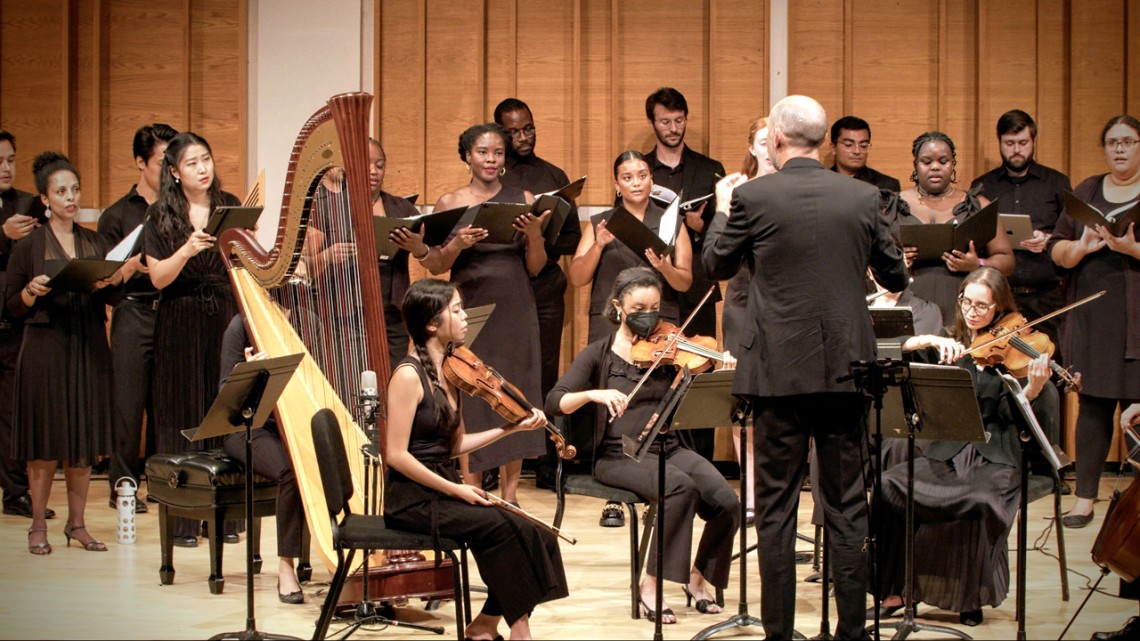
The New Muses Project Choir and Chamber Players performing Adolphus Hailstork’s “Songs of Innocence” at the Kaufman Center in New York City.
New Muses Project injects diversity into classical music choices
By Linda B. Glaser
The racial reckoning that swept the United States in 2020 reverberated through the world of classical music as well, said Joe Lerangis, the Priscilla E. Browning Director of Choral Music and assistant professor of music in the College of Arts and Sciences.
“Classical music faced the same reckoning as every other field in the U.S.A.: that our field is heavily white- and male-dominated, and that simply expecting that change will happen automatically is not enough,” they said.
By 2021, they said, it was clear that although institutions across the music field had made commitments to accessibility, diversity, equity and inclusion, symphonies, choirs and music schools quickly returned to their standard repertoire of largely European composers such as Beethoven, Bach and Mozart. The reason people gave was simple, said Lerangis: “we just program the music we love.”
“But how do we begin to love composers if their voices never make it into the canon, and if there continues to be a systemic lack of recordings, performances, and scholarship of their work?” he said. Their answer: the New Muses Project, created with their colleagues Gloria Yin and Rhianna Cockrell.
The New Muses Project is a platform that provides recommendations of composers based on a person’s current preferences. The platform is backed up by a comprehensive, highly researched network database of composers and their music, including a full set of vetted external resources as well as biographies, transcriptions and other supporting material.
Previous databases of underrepresented composers typically organized composers by identity markers, which can lead to issues of tokenization, Lerangis said. Cockrell, Lerangis and Yin’s goal was to create a tool that would help people approach the question from the love of music itself.
“The goal of both the web platform and the recording series is not to help our users find a composer with a specific background or identity, but rather to find a composer whose music they can fall in love with, whose story can inspire them, and to harness that love to shift the paradigm for good,” Lerangis said.
The current audience of the website consists mostly of music teachers and students, but can be used by anyone. Music teachers, conductors and performers have used the tool to program concerts, curate seasons and prepare lesson plans and assignments, Lerangis said.
“We are hoping that students can find our tool useful mostly as a starting point: something to spark an idea, to whet their appetite for more music from a composer, and to launch them into deeper study,” he said.
Lerangis says their research and curation of the New Muses Project has led directly to their own deeper engagement with composers outside of the musical canon, many of whose pieces make it into their programming of concerts and classroom teaching.
Linda B. Glaser is news and media relations manager for the College of Arts and Sciences
Media Contact
Get Cornell news delivered right to your inbox.
Subscribe
